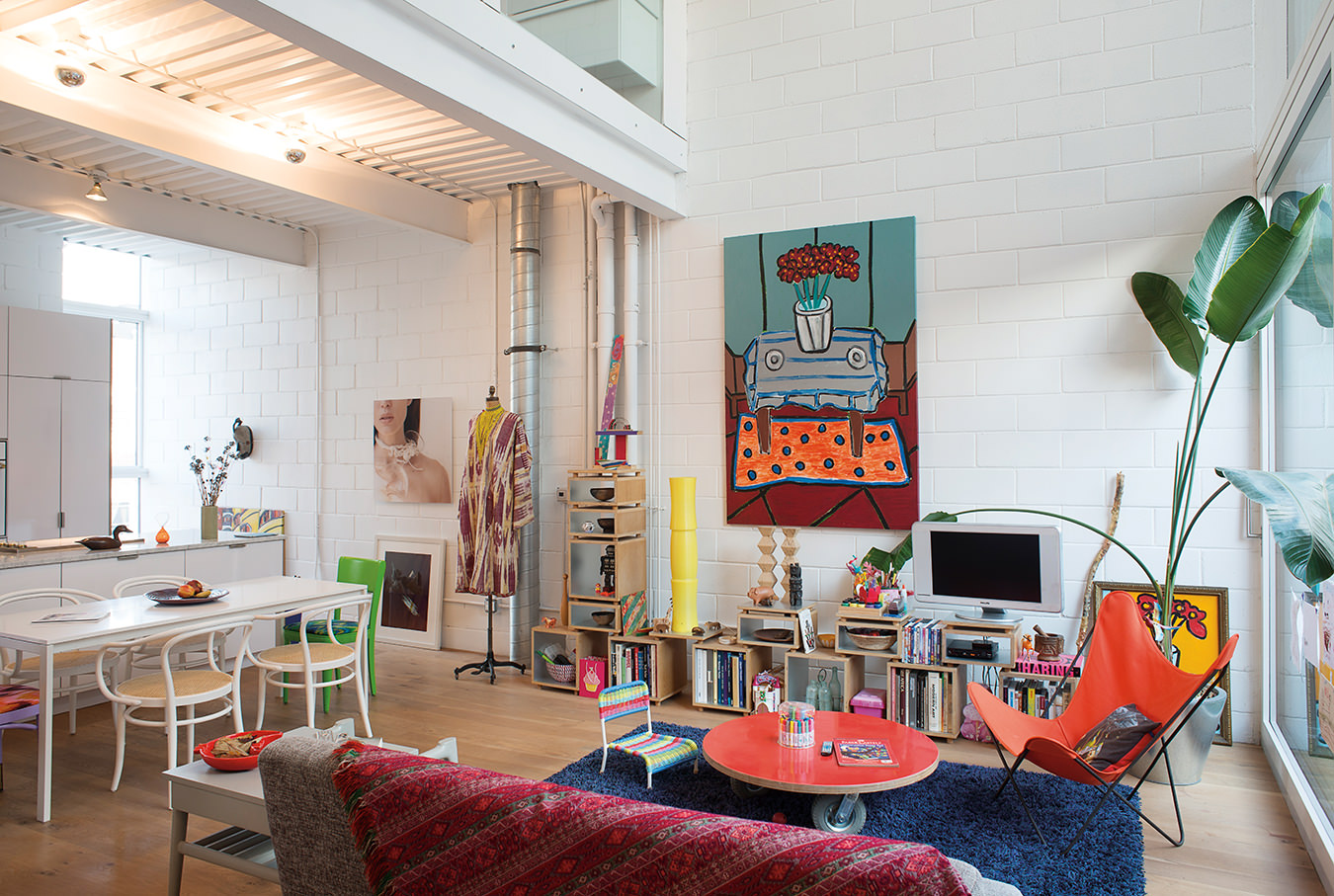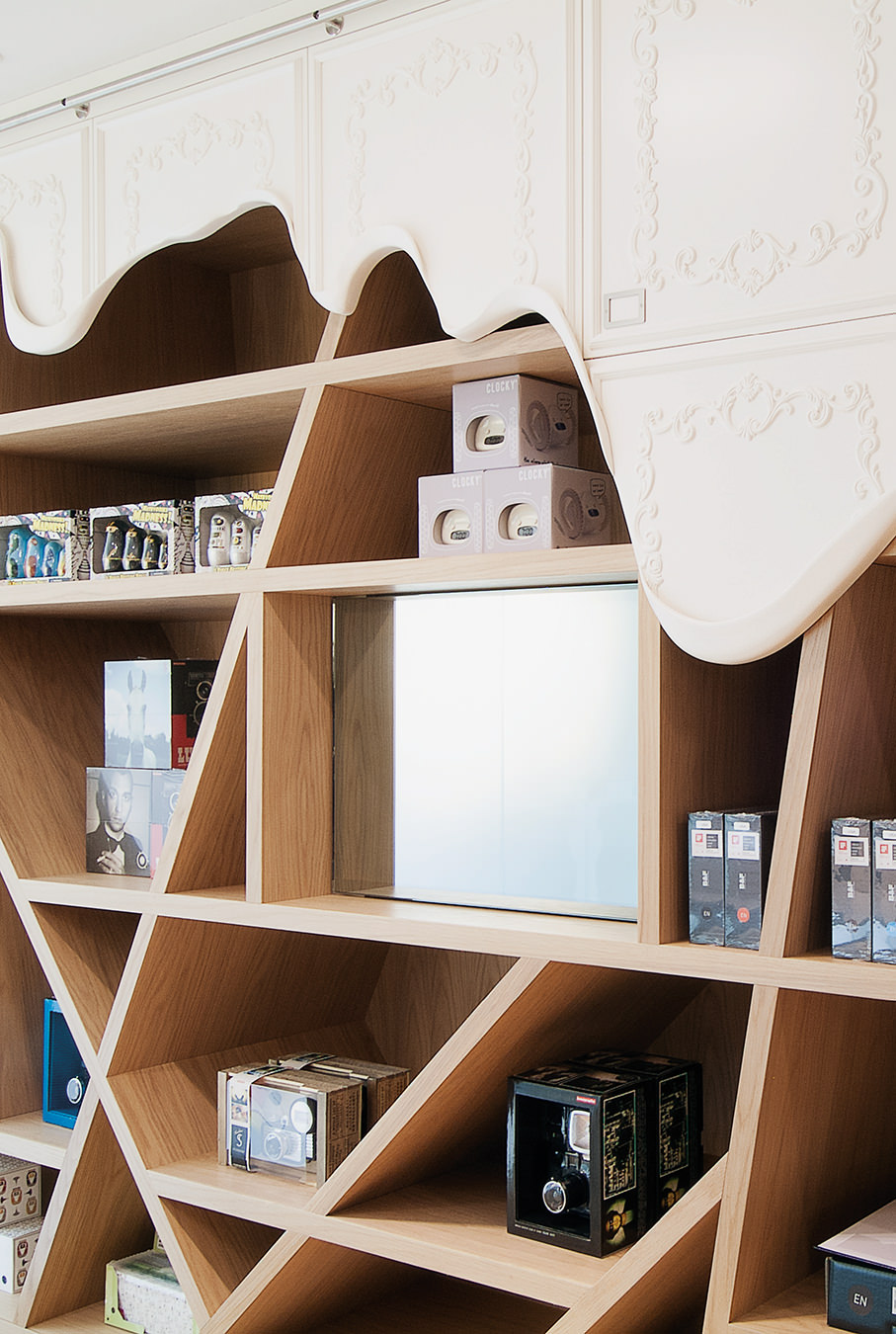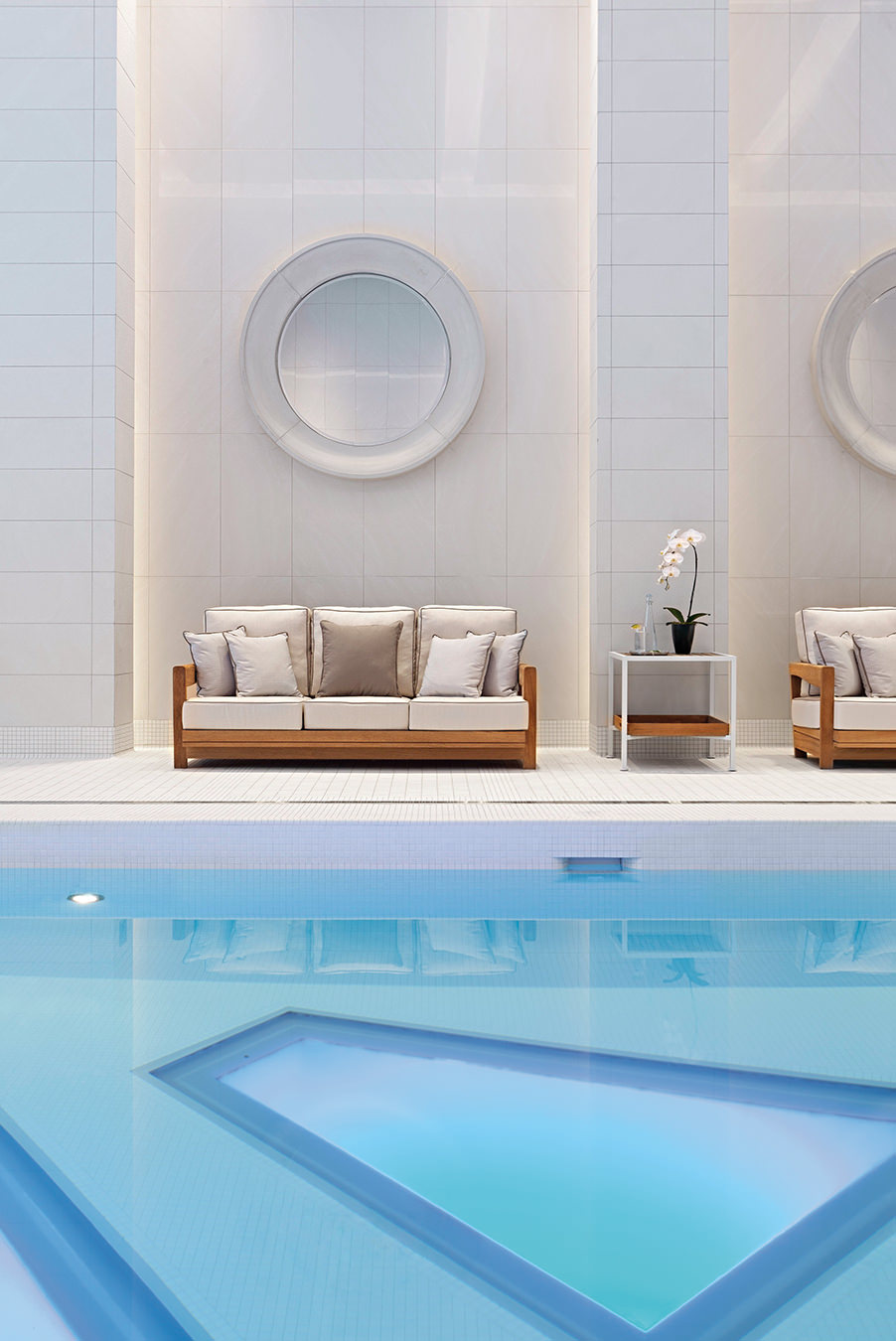-
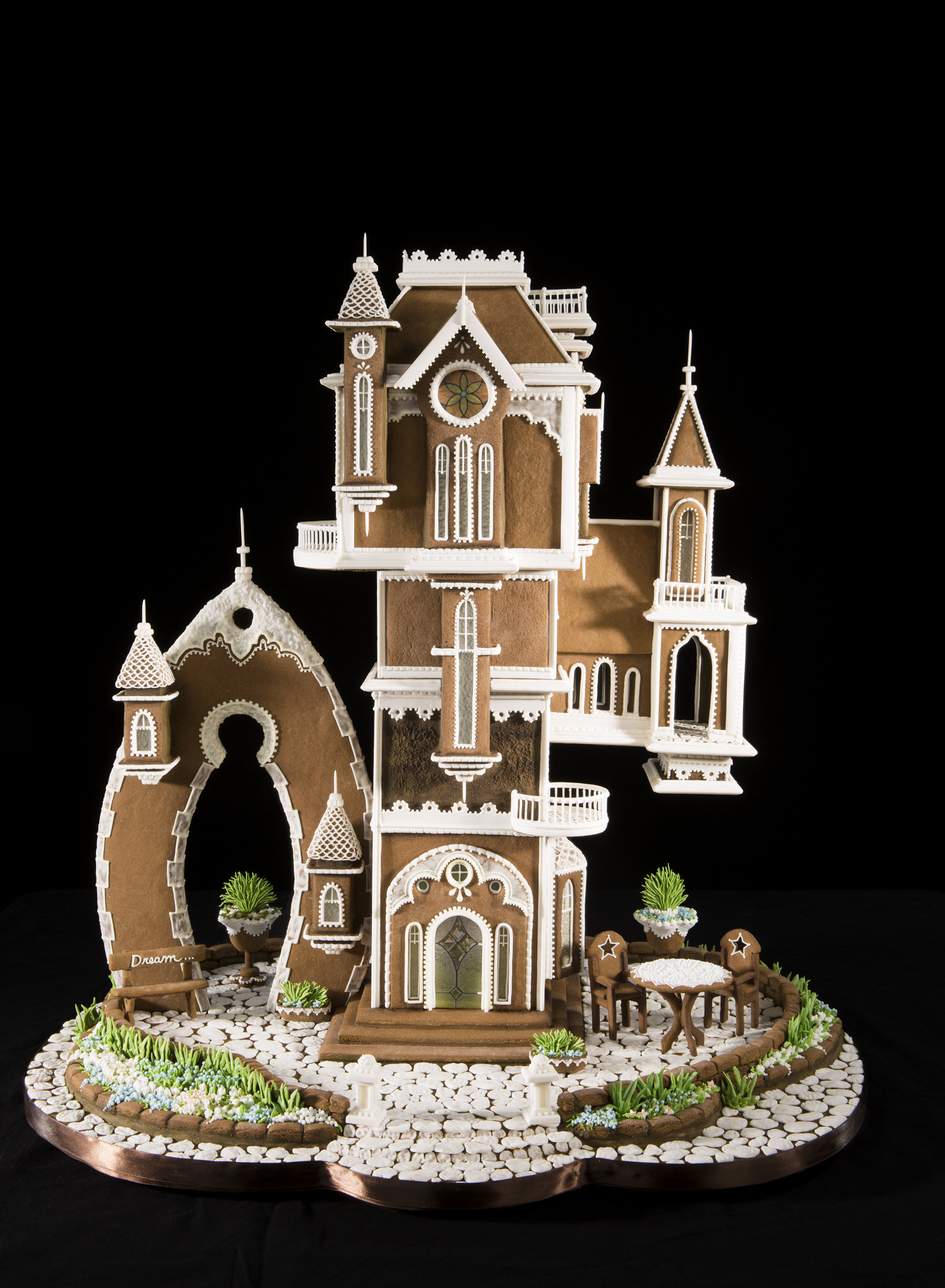
Beatriz Müller won first place in the 2016 National Gingerbread House Competition in Asheville, North Carolina with this gingerbread house.
Photo: The Omni Grove Park Inn.
-
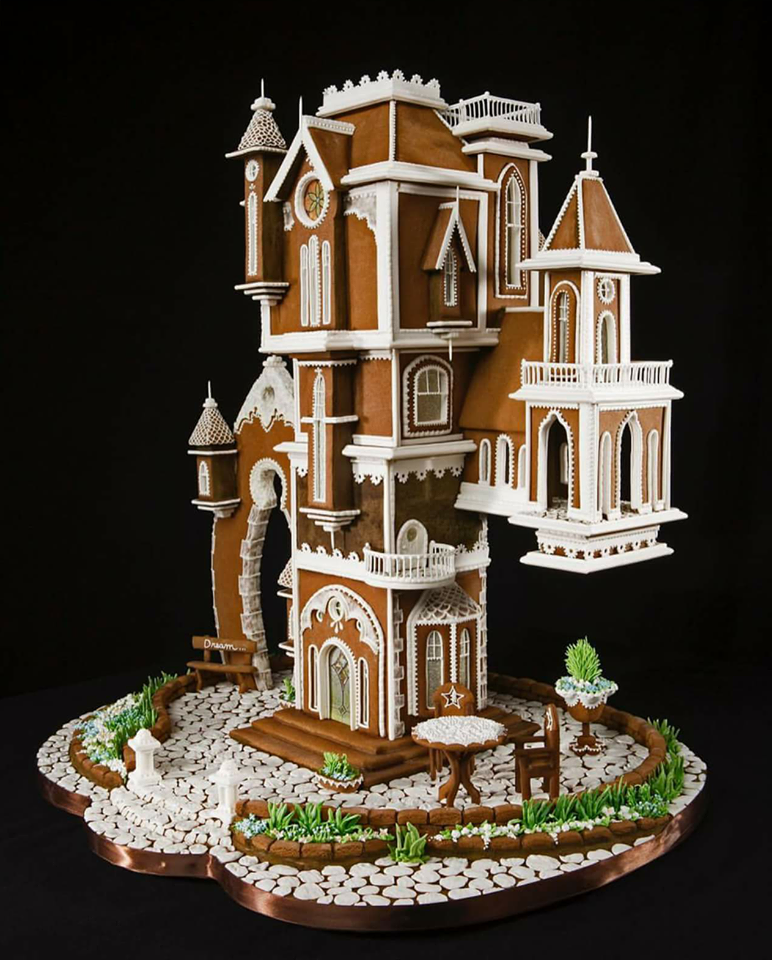
Entitled, “Dream House”, this gravity-defying Gothic-style home was made using only gingerbread, royal icing, pastillage, and fondant.
Photo: The Omni Grove Park Inn.
-

This year, Müller took home third place for her azure- and cream-coloured creation, “At the Water’s Edge”.
Photo: The Omni Grove Park Inn.
-
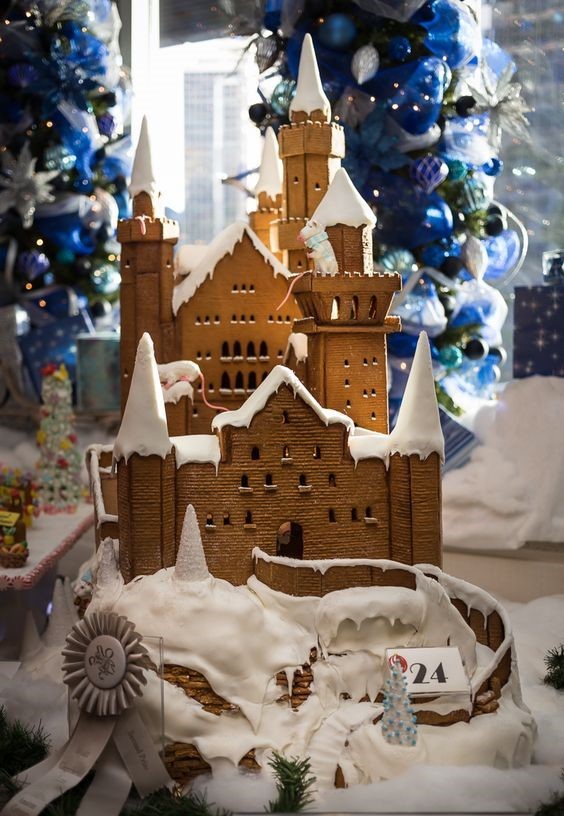
In 2014, Vancouver ceramics artist Genevieve Dionne won second place for “the Castle Von Munch Mausen” at the Hyatt Regency’s Gingerbread Lane competition.
Photo: Flavor Town Adventures.
-
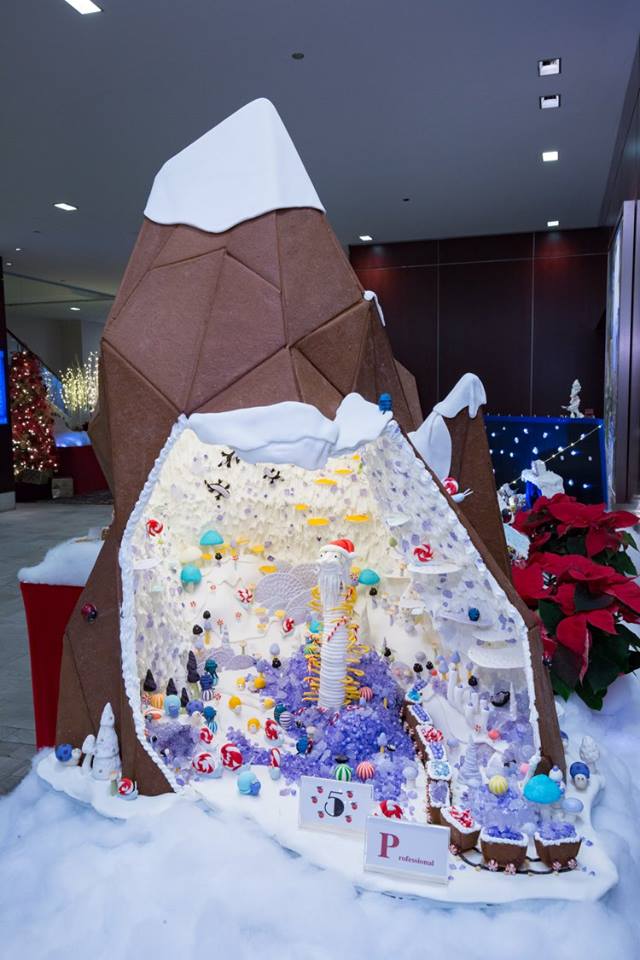
Last year, Dionne and her team created the whimsical “Sugar Mountain” for the Gingerbread Lane.
Photo: Hyatt Regency.
-
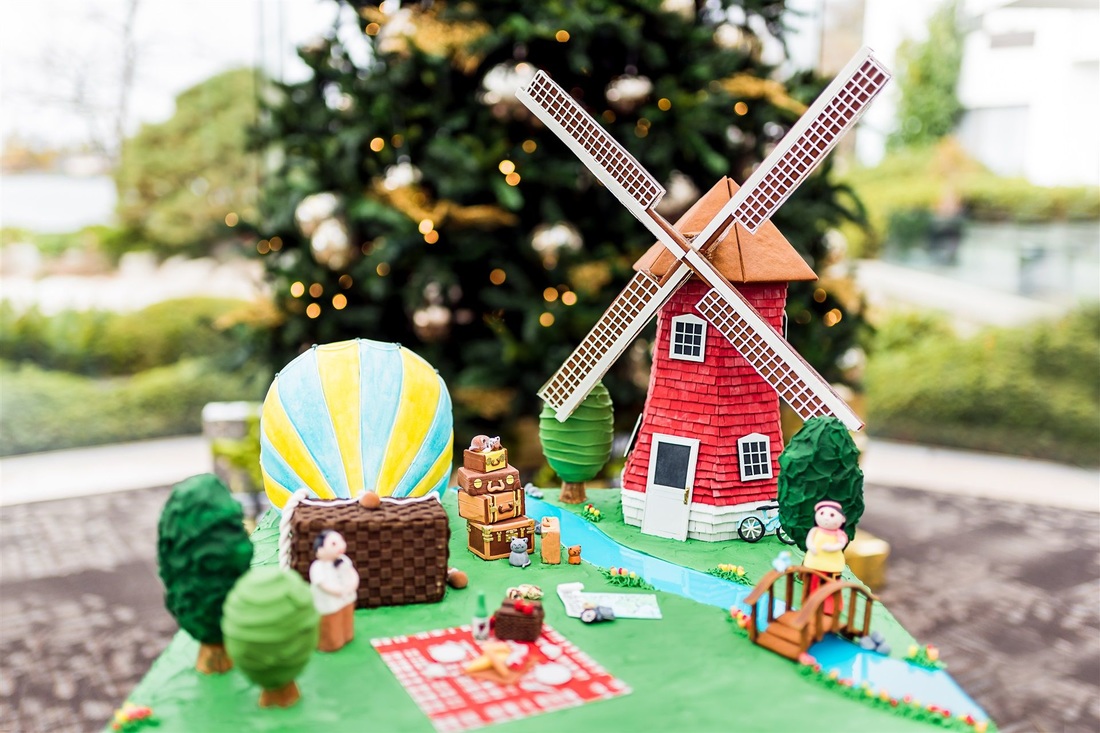
“The Retirement Plan” by pastry chef Kimberley Vy won second place at Canada’s National Gingerbread Showcase.
Photo: The Inn at Laurel Point.
The World of Competitive Gingerbread Architecture
Sweet structures.
Gingerbread has been a part of Yuletide traditions for centuries—shaped into man’s likeness and decorated with gumdrop buttons; cut into stars and hung from the tree; and perhaps most impressively, used as building material for miniature houses.
Most of us, at some point, have tried our hand at the holiday activity of gingerbread house–making, but few have achieved the level of success of an award-winning gingerbread architect like Beatriz Müller.
Born in Argentina with a German background, Müller is an Innisfil, Ontario-based cake designer and certified master sugar artist who has been making gingerbread houses all her life. But when she entered the 2016 National Gingerbread House Competition in Asheville, North Carolina at the Omni Grove Park Inn, it was her first attempt at creating a more extravagant design—and she won first prize.
Inspired by the work of California surrealist painter Daniel Merriam, Müller spent roughly 360 hours crafting a gravity-defying Gothic-style home using only gingerbread, royal icing, pastillage, and fondant. “It’s creating little pieces of art—these fantasy homes and places,” says Müller.
Müller spent roughly 360 hours crafting a gravity-defying Gothic-style home using only gingerbread, royal icing, pastillage, and fondant.
This year, she came in third place with an azure- and cream-coloured gingerbread house, complete with elaborate trim detailing, wrought-iron railings, and storefront windows displaying tiny dresses, three-tiered cakes, and vintage wares. The level of detail is astounding, particularly considering the painstaking work that goes into maintaining the house’s delicate structural integrity. “If you press it the wrong way, it shatters into a thousand pieces,” says Müller of the intricate decorations.
And yet, this is her craft, and one that she enjoys. “I love it, the detailing, all the small things,” she says. “My time flies by, I get lost in the art, and that whole creative process is so rewarding.”
While they are truly a sight to behold, these extravagant gingerbread creations are not simply for the sake of beauty. These competitions tend to have a philanthropic aspect—it is the season of giving, after all.
The Asheville hotel hosting the National Gingerbread House Competition donates half the parking proceeds to local non-profit organizations (it is free to view the houses). In Vancouver, the Hyatt Regency hosts an annual Gingerbread Lane, where professional and amateur bakers alike compete to raise money for the Make-A-Wish Foundation, and in Victoria, B.C., Canada’s National Gingerbread Showcase raises funds for the local chapter of Habitat For Humanity.
“Arriving to the finished product is a bit of a rollercoaster,” says pastry chef Kimberley Vy.
Kimberley Vy, pastry chef at the Inn at Laurel Point, has been creating grand gingerbread creations for the Victoria competition since 2015. Last year, Vy took home second place, with the help of the Inn’s executive chef Takashi Ito, by applying ice-carving techniques to her vibrant and colourful hot-air balloon and windmill scene.
“Arriving to the finished product is a bit of a rollercoaster,” says Vy. “Seeing something in your head and translating it to a real thing can be very difficult and sometimes frustrating.”
Luckily, the final step in the process offers an emotional release. After being on display for quite some time, the houses—though 100 per cent edible—are not exactly tasty. While Müller delights in disassembling her pieces to inspect how well they have held up, Vy takes a different approach.
“Usually with any grand showpiece structure we create, we end up having a little smash party where everyone involved with the project gets to take their turn destroying the piece,” says Vy. “It’s quite cathartic.”
Originally published December 8, 2017.
_________
Never miss a story, sign up for NUVO’s weekly newsletter, here.

